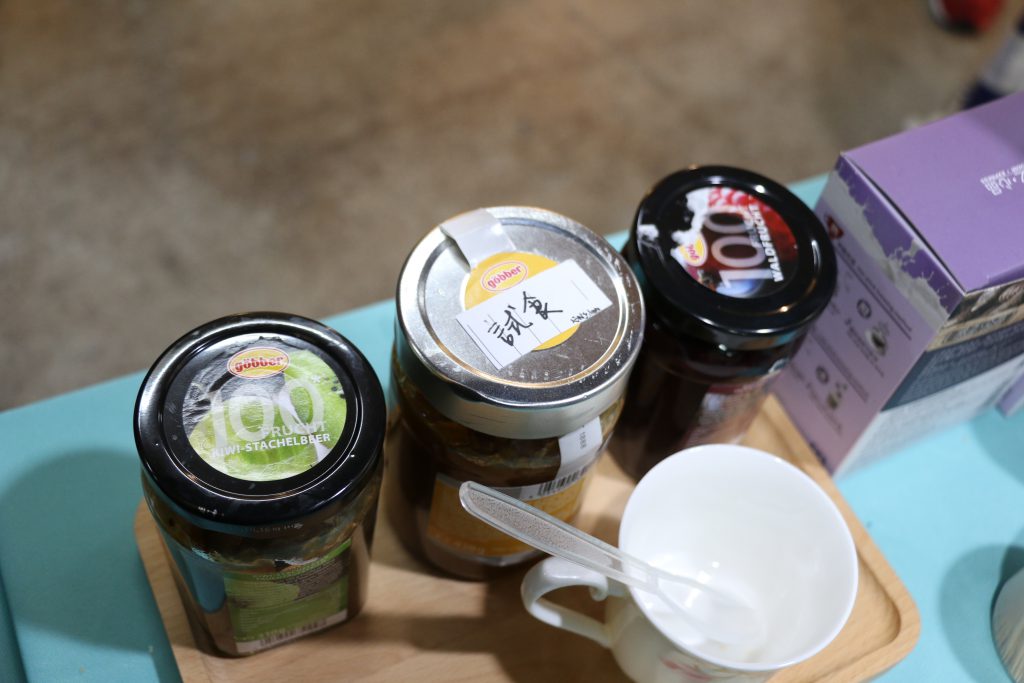As mainstream food retailers are bound by law to send expired food to landfills, consumers do not have any direct channel to obtain food after “Best Before” dates even if they want to. Or at least they didn’t until the advent of GreenPrice, the first-ever supermarket in Hong Kong to sell groceries which have neared or passed their best-before date. GreenPrice – which sidesteps the usual strictures of trade description law by simply declaring openly that the best-before dates on some food has expired – was founded by a group of university students who were concerned about the huge amount of food that is wasted in Hong Kong.

Terence Hon Chun-him, 19, the supermarket’s business development manager, co-founded it with Allison Chan and two other partners with support from the Innovation and Entrepreneurship Development Fund.
“There are actually a lot of people eating expired food out there,” says Hon. “But when it comes to purchasing it, it is a matter of overcoming a psychological barrier.”
GreenPrice’s founders want to change people’s preconceptions. “Many people have a misconception of ‘best-before’ dates, they think that eating expired food will lead to death, but this is not the case,” says Hon.
Having studied cases overseas, Hon thinks food labelling in Hong Kong lags behind other places. Not only have some western countries eliminated the “best-before” label, but they also have similar supermarkets, such as Wefood in Denmark and Approved Food in the UK.

Celia Fung Sze-lai, co-founder of After Best Still Good, agrees that it is time for Hong Kong to update its food labelling policies. She suggests the city can learn from the European Union and get rid of the “best-before” dates for some food, for example non-perishable items like rice, pasta, chewing gum and natural preservatives like vinegar, salt and sugar. These food items have minimal water content and a very low chance of spoiling.
Fung also believes the introduction of waste charging and a Good Samaritan Law could encourage the business sector to engage in more food donations. “I’d really prefer the government to enact the law to increase the incentive [to reduce food waste],” she says.
Waste charging provides an economic incentive because dumping becomes costly. In foreign countries, some companies will deliver their surplus items to food banks and pay the transportation costs because of the high waste charges.
“I think it is not necessary for the government to pay, what makes it sustainable is to provide long-term economic incentives,” Fung added. The issue has not gained much attention in the government or the Legislative Council so far, but Fung believes members of the public can help to draw attention to it.
Since setting up After Best Still Good, Fung and Celia Lau Tan-nei have launched numerous campaigns to educate Hongkongers about expired food. Of these, their pop-up café grabbed the most media attention. Fung says the café provided a venue to cook expired food, so the public could try it out for themselves and see that it is both safe and tasty.
“After trying it themselves, knowing that there is no problem, they will have a change in concept,” Fung says. Although the café was a success, it was costly to sustain and rather passive. “We don’t just want to cook and serve people, but to convey a message, making it sustainable,” Fung explains.
Recently, they have begun to set up booths at community gatherings. At the food testing activity, neither the children nor adult participants could tell the difference between the expired and unexpired food. Yet one batch of cheese crackers in the test was three years past its “best-before” date.
“It is really the psychological barrier of oneself,” Fung says. She thinks we should all abandon the old way of looking at expired food, ignore the labels and trust our instincts to cut down on waste.
Edited by Megan Leung










































